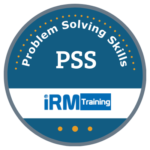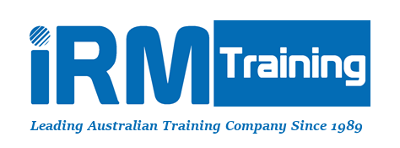
PROBLEM SOLVING SKILLS
Duration: 2 days | Instructor-Led | Course Fee: $1,480 + GST
Problem solving skills are essential to every organisation today.
Needs and objectives drive commercial business and government. However, until you can satisfy a need or meet an objective you have a problem.
One of the most valuable contributions you make is analysing and solving the problems of clients, customers and stakeholders. You also need to show others how the problem was identified and analysed – and how potential solutions were evaluated.
Because problem solving is not a black art. More problems are solved every day through the application of critical thinking skills than through hunches and intuition. In fact, when hunches and intuition do lead to solutions they are invariably based on the subconscious application of specific techniques.
In this training workshop a proven set of analytical and creative thinking techniques are taught that can be applied to any problem in any workplace.
Module 1: Getting Started
- Recognising that a problem exists
- Initial problem definition
- Terms of reference
- Resources and matching these to the seriousness of the problem faced
- What a problem is and what it isn’t
- Basic parameters – problem owner, location, scope, impact
Module 2: Understanding the Problem
Problem analysis techniques:
- Critical examination
- Work study techniques
- Root cause analysis and observation
- Quantifying the causes and effects
- Arriving at an agreed definition of the problem
- Distinctions and similarities
- Setting priorities based on the deviation from what is desired
- Representing the results of analysis in graphical and written form
Module 3: Identifying the Solution
- Agreeing and working within a framework of objectives
- Scope of the required solution
- Use of both logical and creative thinking approaches to identifying solutions
- Identifying the non-starters from the candidates for evaluation
Module 4: Evaluating the Solution
- Agreeing the alternatives and assessing the fit and suitability of each one
- Identifying interrelated solutions together with the pre and post conditions for overall success
- Quantifying the benefits and disadvantages of each solution
- Selecting a solution
- Anticipating potential problems and quantifying these in terms of risk, seriousness and visibility
- Agreeing what and what not to address
- Refining the solution
- Agreeing contingency plans and the way forward
Module 5: The Problem Solving Process
Putting all the problem solving skills together to go through the full problem solving process:
- Detection
- Analysis
- Design
- Selection
- Risk
- Deployment

This course is suitable for:
- Technical and business staff who wrestle with business problems
- Team members needing to participate effectively in problem analysis and problem solving
This course aims to provide and teach a framework of techniques suitable for successfully analysing and solving problems.
On completion of the Problem Solving Skills training course, you will be able to:
- Use a structured process for identifying and defining problems
- Apply techniques for analysing problems, their root cause and impact
- Use creative and lateral thinking techniques for identifying solutions
- Assess solutions based on feasibility, impact and risk
- Select, recommend and be able to justify the solution
You can now attend this course remotely.
The course will still be practical, interactive and delivered live by senior instructors with 15 – 25+ years’ experience with the skills to make the intensive learning experience interesting and enjoyable.
Various additional measures to maximise the remote training experience have also been experimented, planned and incorporated. Find out more about practical training delivered remotely (live).
“Very valuable course, specifically in identifying a formal framework for problem solving” – Functional Analyst, Medibank Private
“Good techniques & methodologies for problem solving which can be implemented at any level” – Business Analyst, ATO
“Good stimulating exercises which induced creativity” – Business Analyst, Dept of Health & Ageing
“Brilliant introduction into BA way of thinking. Presented in easy to digest bite size blocks of information” – Business Analyst, Country Energy
“Excellent course which really helps to develop analytical and problem solving skills” – Senior Business Analyst, Swinburne University
“Provides great tools to communicate effectively with clients” – Business Analyst, ING Direct
“Very useful… learnt information that I can take back to work, and tools that I can use for my personal benefit” – Business Analyst, Avanteos (Commonwealth Bank)
COURSE DATES & BOOKINGS
| Location | Date | |
|---|---|---|
| Group Booking - Remote Delivery | Flexible Dates & Hours | |
| Your Office - In Person | Flexible Dates & Hours |
“Very valuable course, specifically in identifying a formal framework for problem solving”
We train professionals from these Australian organisations and more:


